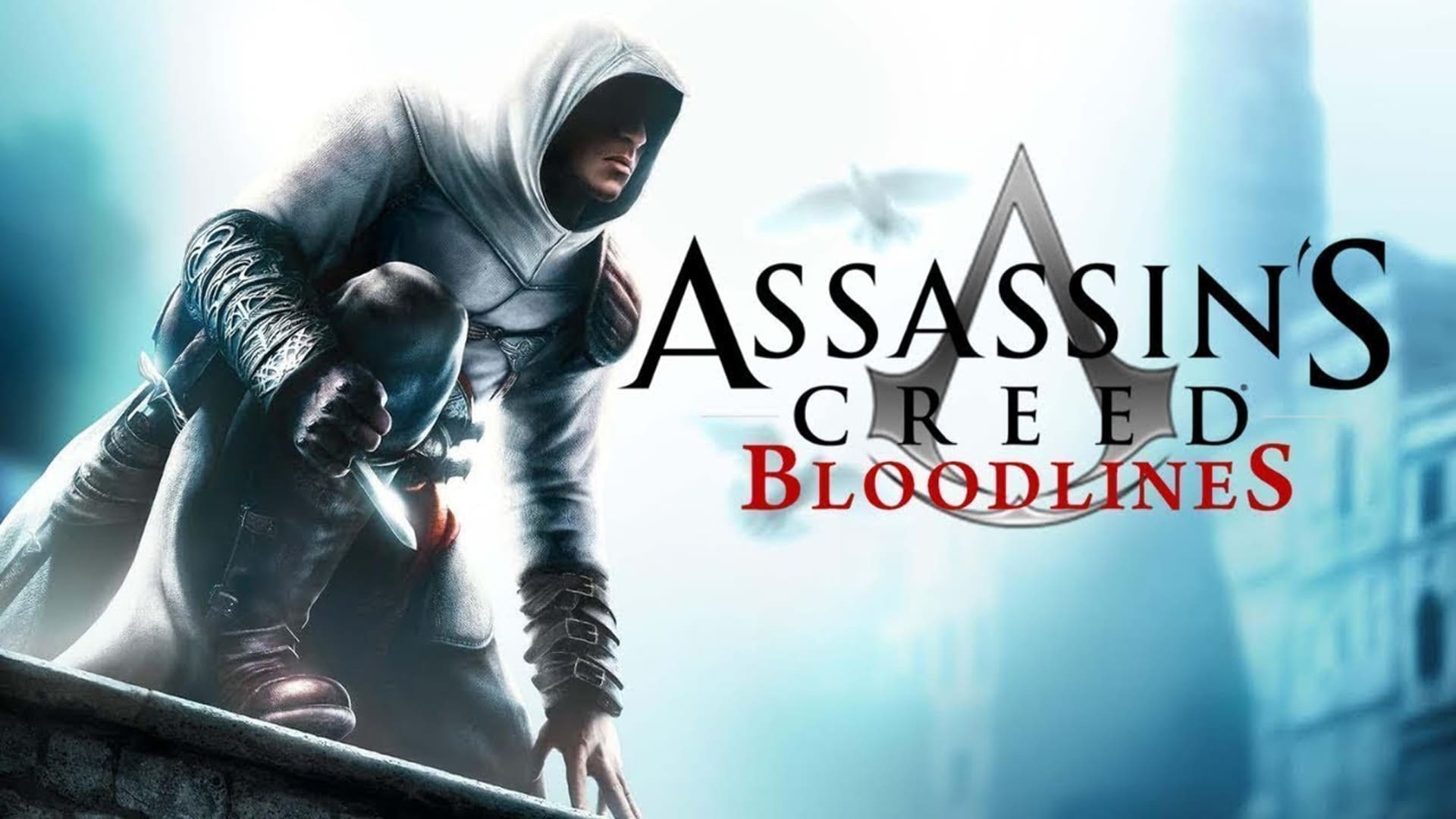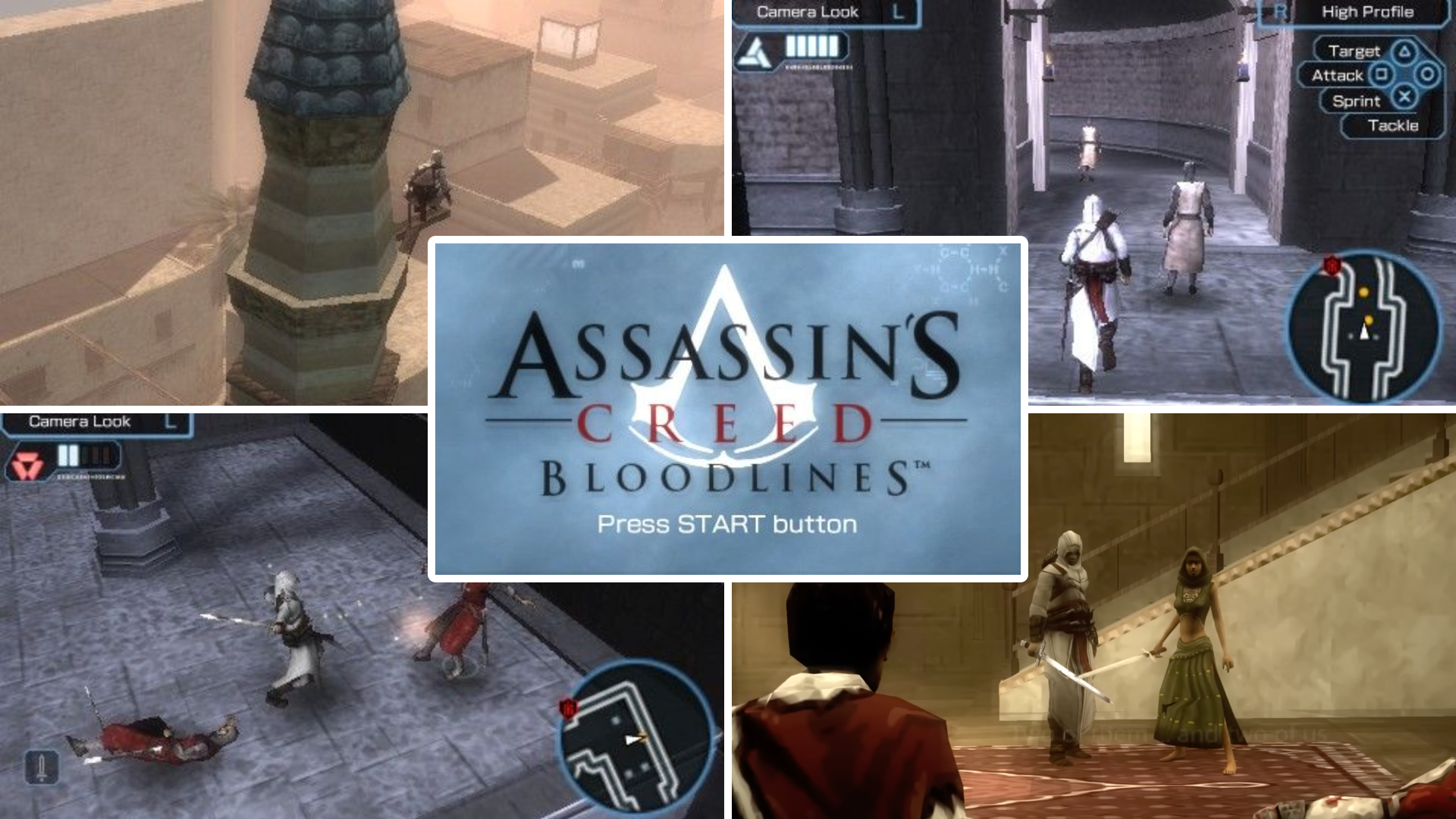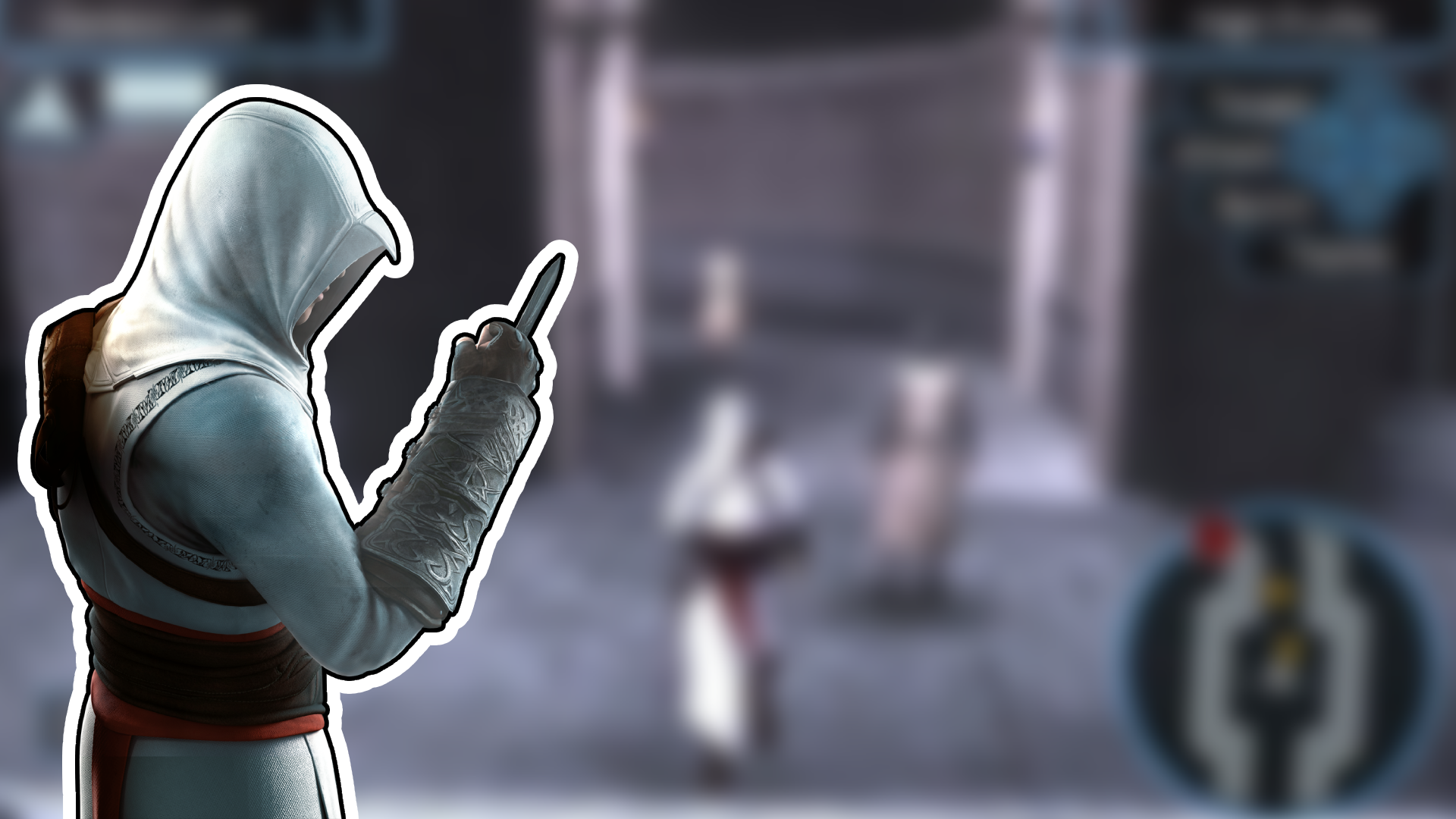Desynchronized: Altaïr lost synchronization with Ubisoft's release strategy.

Sometimes, it feels like Ubisoft's Assassin's Creed franchise is everywhere. Since the launch of the first game in 2007, the titles have been rereleased as ports, remasters or collections anywhere from Xbox 360 and Wii U to even Google Stadia.
All the more surprising then that there is one official sequel game to the first Assassin's Creed that remains stuck on its original system.
Ubisoft's New Era
After initially being intended as the next entry in the Prince of Persia series, 2007's Assassin's Creed quickly developed into its own thing; telling the story of Altaïr, a master assassin during the Third Crusade in 1191, a story framed as protagonist Desmond Miles reliving his ancestor's memories to uncover a secret war between the Assassin and Templar factions.
The game's intriguing story and open-world exploration, social stealth (blending into crowds, hiding in plain sight), parkour-based climbing and freerunning across famous historical settings to gather intel before assassinating key Templar targets proved extremely popular. A prequel in the form of Assassin's Creed: Altaïr's Chronicles (2008) and a sequel with Assassin's Creed II (2009) were soon to follow.
However, somewhat forgotten today is the fact that Altaïr's story would be expanded one more time before he was eventually replaced with new protagonists like Ezio in Assassin's Creed II: Concurrently with the numbered sequel, Ubisoft released a PSP-exclusive title meant to bridge that narrative gap.
Altaïr's Final Chapter
Assassin's Creed: Bloodlines, released in 2009 for the PlayStation Portable, continues Altaïr's story from where the first game left off. A few months after the events depicted in Assassin's Creed (2007), the assassin pursues the remaining Templars to Cyprus, where they had set up their own dictatorial regime, while he eventually forms a relationship with Maria Thorne, a prominent Templar form the first game.
Despite the PlayStation Portable – being a handheld console – offering far less processing power, Bloodlines manages to stand out as a technical showcase by accurately replicating the 3D action-adventure, stealth open world gameplay of its PlayStation 3 template. In contrast, the prequel Altaïr's Chronicles (released for Nintendo DS, java and smart phones) was far more limited.
You can tell that Bloodlines was intended to be a true follow-up, only cutting back on the amount of NPCs, the controls and some abilities, while introducing new mechanics like ledge pull-downs. There was even some connectivity to Assassin's Creed II on the PS3, with players being able to transfer resources and unlock abilities and weapons in one title by playing the other.
Sony's Technical Showcase

Unlike II though, which received near-universal acclaim, Bloodlines' critical reception was far more mixed. Many outlets praised its faithfulness to the series and its console-quality presentation, but felt like the game's world was too cramped, with gameplay generally criticized as "generic".
While negative feedback has never stopped Ubisoft from re-releasing their games (for example, Assassin's Creed Unity was ported to Google Stadia in 2020), and they have been open to remastering their handheld titles (see the PSVita's Liberation from 2012), Bloodlines is unique in that the game was not developed by any Ubisoft subsidiary, but instead outsourced to the now-defunct Griptonite Games, meaning that detailed documentation on assets and pipelines required for an easy re-release are likely lost by now.
It's also somewhat of a relic of a bygone era in the sense that it was explicitly presented and advertised by Sony for its connectivity to the PlayStation 3 title released around the same time. Thus, we can likely assume that said connectivity was one of the main reasons for the title to be created in the first place, leaving Ubisoft with little incentive to bring it back now.
Fans' Tireless Work
Fans of the game and the series, however, continue to keep the game alive by various means.
On emulators, it's possible to improve it with mods, including 2023's HD texture pack by Paulanabus4 and a 60 FPS patch by Lunamoo and Kabuto_Kun, the latter of which also a created a patch that allows for the camera in the game to be manually controlled with a right analog stick when emulating (the PSP itself infamously only had one analog stick).
While there is no fully-fledged fan remake of Bloodlines, similarly to the case of the neglected & forgotten Panzer Dragoon Saga, a protoype to ignite interest in such a project has been created in 2022. A team consisting of seven students surrounding Aurélien Thazet replicated parts of the PSP game in Unreal Engine 5 for a school project.
With Ubisoft reportedly having multiple Assassin's Creed remakes currently in development, we can't rule that the company may eventually be willing to go the extra mile to allow Bloodlines to fulfil its true potential. But until this unlikely scenario, this chapter in Altaïr's history remains restricted to Sony's 2004 handheld.


































